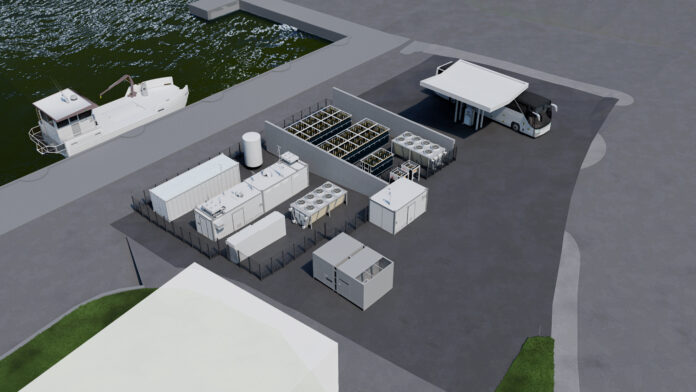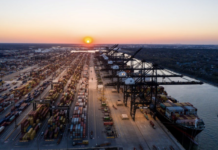
Klaipėda Port launched its green hydrogen initiative, positioning itself as the first in Lithuania and the broader Baltic region to produce and supply green hydrogen for maritime vessels, port machinery, and private transport.
Construction is set to begin shortly, as the project has now secured the necessary building permit.
Algis Latakas, Director General of the Klaipėda State Seaport Authority, said the aim is to begin hydrogen production next year, and construction of a hydrogen-powered vessel is already underway.
The construction tender process, overseen by the Klaipėda State Seaport Authority, is nearing completion, with physical works expected to commence in June.
The project includes the development of a specialized site and the installation or upgrading of key infrastructure such as electricity, water supply, drainage systems, hydrogen pipelines, and communication lines.
The hydrogen production facility will be housed in a standard 40-foot shipping container and will require 2.25 MW of electricity to operate. The infrastructure is being designed to distribute hydrogen to a range of users, including vessels, heavy vehicles, buses, and other forms of transport.
Once operational, the station is expected to produce approximately 127 tons of hydrogen annually. Alongside construction, plans are advancing to integrate this fuel into various sectors.
To support this effort, the Klaipėda State Seaport Authority signed a memorandum last year with the stevedoring company Bega, agreeing to explore the use of green hydrogen in port terminal operations.
Additionally, a cooperation agreement with LTG Group was signed at the end of last year, aiming to evaluate the use of green hydrogen in rail transport. The agreement also includes joint participation in EU-funded projects and a commitment to develop a comprehensive hydrogen supply chain.





